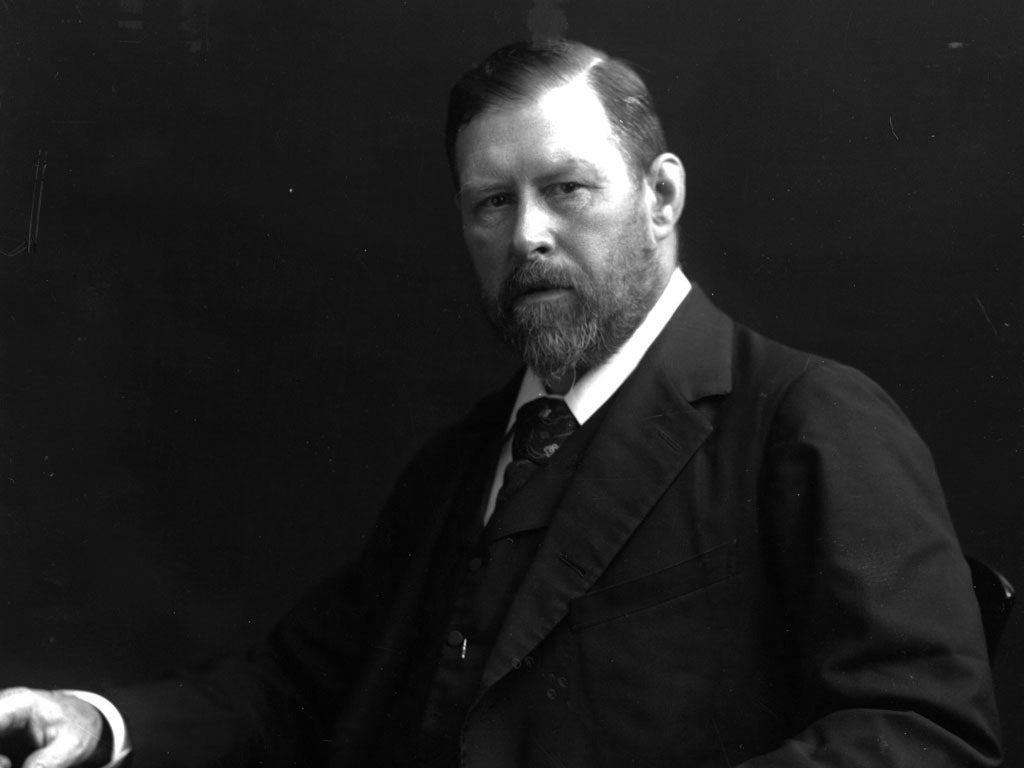Dracula's contract to see the light of day 100 years on
Original document drawn up by Bram Stoker to be published after being kept under lock and key

Your support helps us to tell the story
From reproductive rights to climate change to Big Tech, The Independent is on the ground when the story is developing. Whether it's investigating the financials of Elon Musk's pro-Trump PAC or producing our latest documentary, 'The A Word', which shines a light on the American women fighting for reproductive rights, we know how important it is to parse out the facts from the messaging.
At such a critical moment in US history, we need reporters on the ground. Your donation allows us to keep sending journalists to speak to both sides of the story.
The Independent is trusted by Americans across the entire political spectrum. And unlike many other quality news outlets, we choose not to lock Americans out of our reporting and analysis with paywalls. We believe quality journalism should be available to everyone, paid for by those who can afford it.
Your support makes all the difference.The sprawling, archaic handwriting is difficult to decipher, but a few, key words are clear: "The Un-Dead". The document, seen here publicly for the first time, seals the publishing pact that gave the world what remains, more than 100 years later, its most celebrated horror novel: Bram Stoker's Dracula.
The original legal contract, hand-written by Stoker himself and which has been kept under lock and key, is to be published in a new version of the vampire tale. It reveals the terms dictated by Stoker – who studied law but never practised – in negotiating a 20 per cent royalty fee for the book on 1 May 1897. This was remarkable at the time and is more than modern authors and their agents can command with the current standard of 10 to 15 per cent.
Despite the book going on to sell millions of copies around the world, its initial print run was for 3,000 copies, at a price of six shillings each. Stoker would receive no royalties for the first 1,000 sales, but every copy after that he would receive one shilling and sixpence.
Dracula, though not the first novel to feature vampires, defined their modern form and has gone on to inspire countless books and films – most recently Stephenie Meyer's teen franchise Twilight.
In an interview months after its release, Stoker spoke of his dislike for publishing agents: "Some men nowadays are making 10,000 a year by their novels, and it seems hardly fair that they should pay 10 or 5 per cent of this great sum to a middle man. By a dozen letters or so in the course of the year they could settle all their literary business on their own account."
Nick Robinson, chairman of publisher Constable & Robinson, which is to republish the novel in its original form with the contract, said: "Stoker wrote the contract himself, which from a publisher's point of view is rather extraordinary. The terms – roughly 20 per cent royalties – are, again from a publisher's point of view, pretty tough. But he clearly knew how to frame a contract and was able to dictate terms."
The contract remained at the publisher's offices in central London since it was signed, sitting in an old tin trunk in a hallway until the 1960s, when the firm was bought by Ben Glazebrook. Its significance and value were appreciated more fully and it was kept secure in the proprietor's locked desk.
Despite Stoker's diligence in getting a good deal for his manuscript in the UK, the same could not be said when it came to the American edition. Dacre Stoker, the author's great-grand-nephew, who is also an author and who lives in the US, told The Independent on Sunday: "The book wasn't published in America until 1899. However, Dracula was serialised in American newspapers for a couple of years because there were very strange copyright laws in the US that required authors to serialise their work prior to them publishing.
"He then signed a contract with the publishers Doubleday, but they still won't reveal the contract to this day. It's one of those mysteries: why did Bram lose the copyright to the book? The party line is he apparently didn't fulfil all the requirements, but he certainly didn't have all the rights he should have had." Before he wrote his gothic novel, Stoker was a personal assistant to the actor Henry Irving – said to be, partly, the inspiration for Dracula himself. He also worked as a business manager at the Lyceum Theatre in London, a post he held for 27 years.
He died in April 1912 from syphilis and his ashes are kept in Golders Green cemetery in north London.
Join our commenting forum
Join thought-provoking conversations, follow other Independent readers and see their replies
Comments